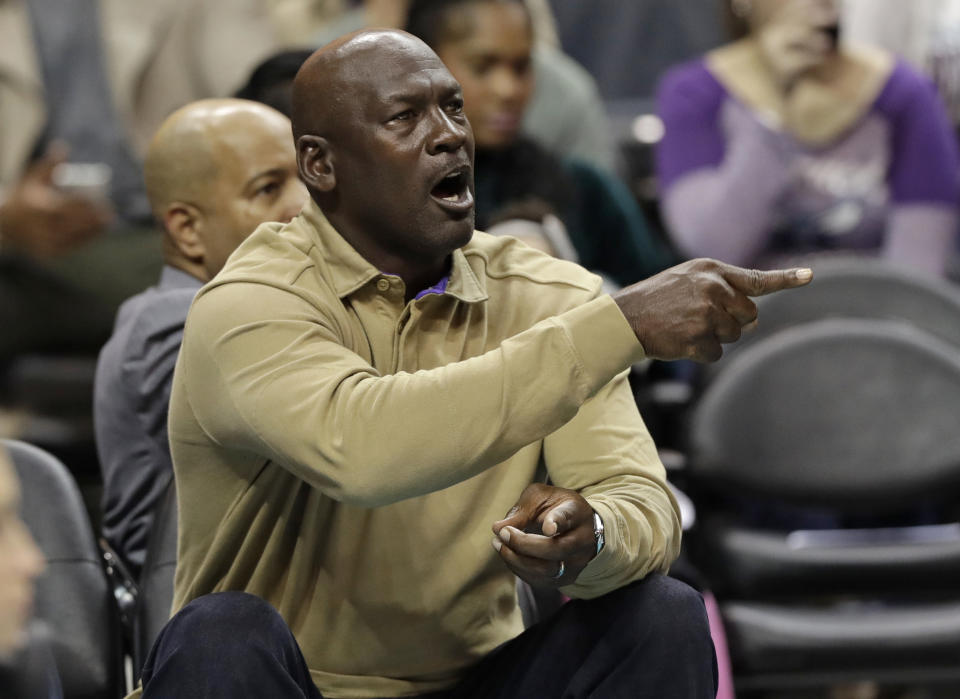What does Michael Jordan think about load management? 'You're paid to play 82 games'
The older generations are always telling young’uns they have it easy.
Oh, you have to walk to the end of the road to catch the bus? “Back in my day, we walked 15 miles uphill — both ways, in the snow — to get to school.”
Oh, you do this thing called “load management?”
“Back in my day, we played every game and watched our arms fall off it they had to. We glued ’em back on, walked 15 more miles to the arena in snow and did it again.”
That’s clearly a highly dramatic take, but consternation over load management has crept up early in the season. Orlando Magic coach Steve Clifford chimed into the conversation with his approach direct from Micheal Jordan. Clifford coached the Charlotte Hornets, owned by Jordan, from 2013-18.
“Our guys aren’t used to sitting on the second game of a back-to-back.… We’re not sitting guys just to sit,” Clifford said. “For me, my background frankly, it all goes back to expectations. Being with Michael in Charlotte, Michael used to tell them every year, you’re paid to play 82 games.”
Jordan knows about playing all 82 games. He did it nine out of his 15 NBA seasons, and in every year but his final one he started all of those games. Plus, he played in 13 postseasons totaling 179 extra games. He averaged 38.3 minutes per game in the regular season and 41.8 minutes per game in the postseason.
He also took a year off in his prime to try out baseball, and skipped three seasons from age 35 to 37 while retired.
Things change over time, and load management is seen as a necessary way by many teams to keep the game’s best athletes healthy and at peak performance for the postseason. The Toronto Raptors did it with Kawhi Leonard, and the Los Angeles Clippers are keeping it up. They made waves when Leonard — with the NBA’s support — missed a primetime showdown with the Milwaukee Bucks. To his end, reigning MVP and Bucks star Giannis Antetokounmpo isn’t about it.
New York Knicks head coach David Fizdale drew ire by dismissing the idea he should be playing rookie RJ Barrett less.
“We got to get off this load management crap,” Fizdale said Sunday.
It’s a complicated topic. For all who want to see the best in April go for a championship, there are still people paying a good chunk of money to see players in November. And when the best product isn’t on the floor, it hurts the team and league.

More from Yahoo Sports:

 Yahoo Finance
Yahoo Finance 
